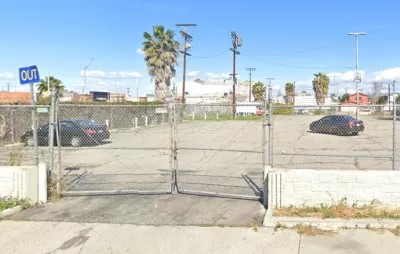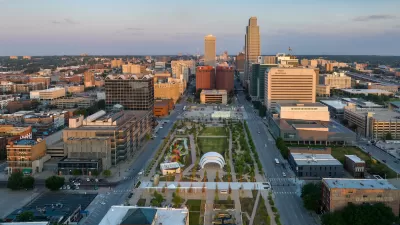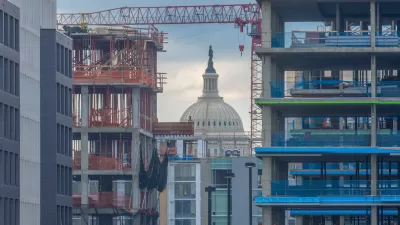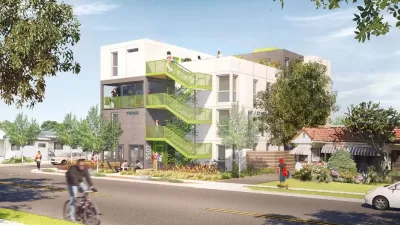A survey of city-owned vacant lots identifies properties that could be developed into affordable housing or shelter.

A group of civic leaders calling itself the Committee for Greater L.A. is using a study it commissioned to urge Los Angeles city leaders to convert city-owned vacant lots into affordable housing or shelters for unhoused people. “The study, conducted by the nonprofit Center for Pacific Urbanism, analyzed variables including slope, zoning and proximity to utilities to winnow down 65,000 parcels owned by city, county, state, federal and other agencies such as Metro and the Los Angeles Unified School District.”
As Doug Smith explains in the Los Angeles Times, “In releasing a database of 126 proposed sites online, the committee sought to keep up pressure on Mayor Karen Bass to follow through on her campaign pledge to build 1,000 beds on public land in her first year in office.” Mayor Bass says “she has her own list of properties and her own,” longer timeline.
A brief Los Angeles Times analysis shows that some of the sites identified in the study have political challenges that were not included in the results, such as local opposition to shelters or ownership by multiple agencies. Even sites owned entirely by the city encounter bureaucratic and financial obstacles. “Public parking lots, which also make up slightly more than half of the committee’s priority list, are often problematic because they serve local businesses and generate revenue for the city.”
The study also acknowledged the potential of privately owned vacant lots, which in some cases are better suited for housing. “Some organizations, such as churches, may be open to using their land for purposes that align with their mission, it said, but made no mention of eminent domain.”
FULL STORY: More than 100 vacant, government-owned parcels in L.A. could be used for housing, study finds

Maui's Vacation Rental Debate Turns Ugly
Verbal attacks, misinformation campaigns and fistfights plague a high-stakes debate to convert thousands of vacation rentals into long-term housing.

Planetizen Federal Action Tracker
A weekly monitor of how Trump’s orders and actions are impacting planners and planning in America.

In Urban Planning, AI Prompting Could be the New Design Thinking
Creativity has long been key to great urban design. What if we see AI as our new creative partner?

California Creates Housing-Focused Agency
Previously, the state’s housing and homelessness programs fell under a grabbag department that also regulates the alcohol industry, car mechanics, and horse racing.

Chicago’s Ghost Rails
Just beneath the surface of the modern city lie the remnants of its expansive early 20th-century streetcar system.

Baker Creek Pavilion: Blending Nature and Architecture in Knoxville
Knoxville’s urban wilderness planning initiative unveils the "Baker Creek Pavilion" to increase the city's access to green spaces.
Urban Design for Planners 1: Software Tools
This six-course series explores essential urban design concepts using open source software and equips planners with the tools they need to participate fully in the urban design process.
Planning for Universal Design
Learn the tools for implementing Universal Design in planning regulations.
planning NEXT
Appalachian Highlands Housing Partners
Mpact (founded as Rail~Volution)
City of Camden Redevelopment Agency
City of Astoria
City of Portland
City of Laramie





























